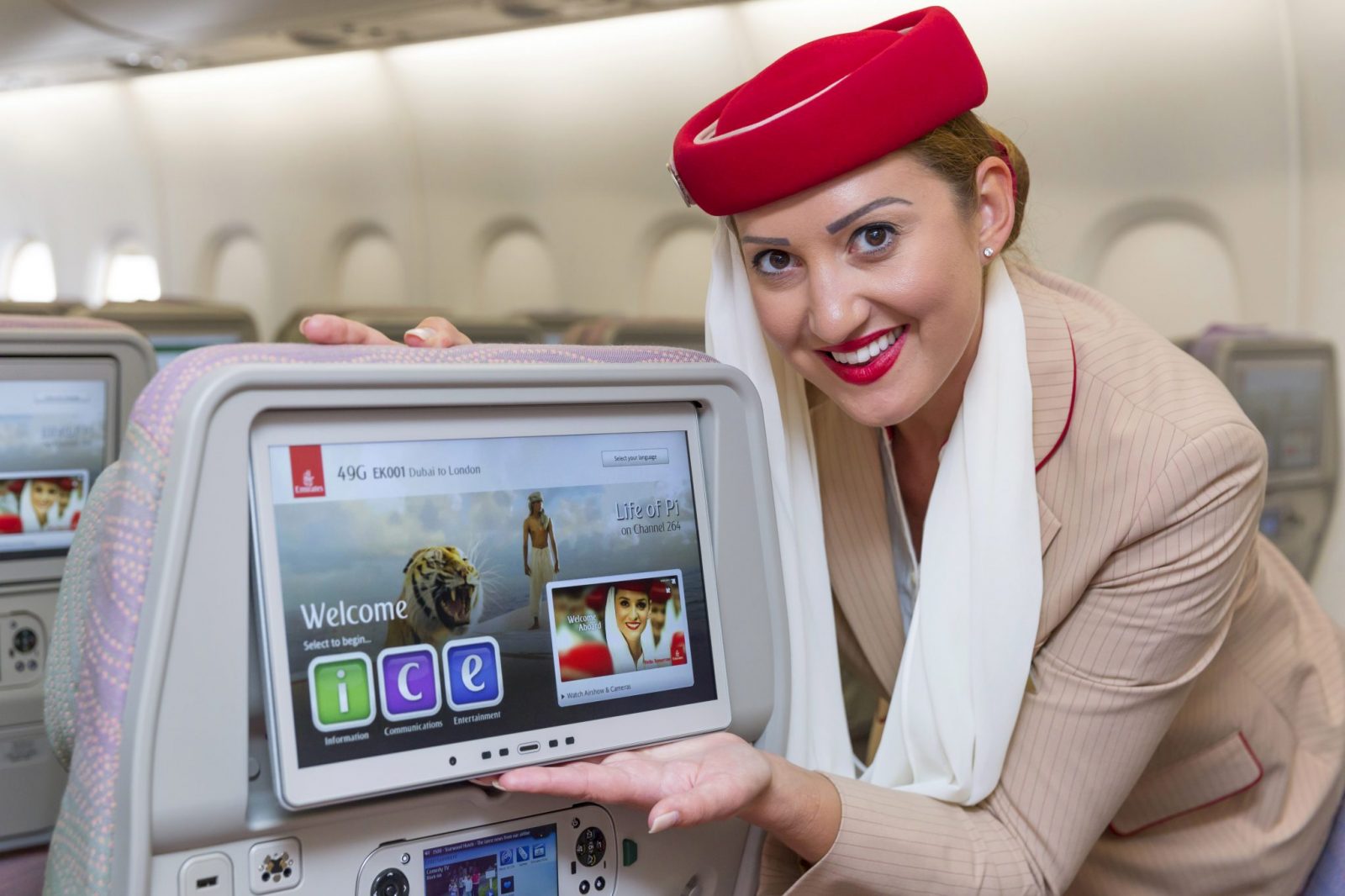
About four weeks ago we covered a story about a proposal by Air New Zealand to equip their Cabin Crew with augmented reality (AR) goggles. Now it looks like Dubai-based airline, Emirates might be set to copy them.
The system being looked at by Air New Zealand uses the Microsoft HoloLens platform to aggregate and display key passenger information on a screen within the Flight Attendant’s field of vision. That might be the passenger’s frequent flyer status, their preferred meal choice or any special requests they’ve made for the flight.
Working with digital specialists Dimension Data, the Kiwi airline also said the HoloLens could detect passenger emotions and feed that information directly back to the Cabin Crew. Although the system being used by Air New Zealand is just a prototype – and isn’t actually in use at the moment, it still looks like it’s grabbed the attention of senior execs at Emirates.
According to Bloomberg, Christophe Mueller, the airline’s chief digital officer spoke of stealing the idea at an aviation industry conference in Mexico last week. Speaking about the potential benefits, Mueller is reported to of said: “We could enhance customer service tremendously,”
“The consumer will want to interact in a completely different way.”
Although, even Mueller is aware the devices could seem strange to some passengers: “It still looks a little bit odd but maybe that can be overcome.” Yet that hasn’t stopped him even suggesting giving the goggles to passengers as a new way to navigate their way around the airport.
While the AR glasses could revolutionise the passenger experience, some might question Emirates’ decision to invest in such expensive tech at a time when the airline is experiencing unprecedented financial difficulties. The airline saw profits its plummet 82% last year and passenger growth in the Gulf region is set to shrink to just 7% this year.
Within their financial results, Emirates disclosed that demand on once profitable routes had “dried up”. Tim Clark, the airline’s President has warned of a “gathering storm” – citing the threat of low-cost carriers amongst a host of other threats facing the airline.
For Mueller, it’s an interesting move that could indicate his intention to remain at Emirates. He had been touted as the successor of James Hogan as CEO at rival, Etihad Airways. The Abu Dhabi-based airline has been searching for a long-term replacement to the now disgraced Hogan, who’s failed equity investment scheme has added to Etihad’s long list of woes.
From October, Etihad will be dropping San Francisco from its route network due to poor ticket sales. Demand is said to have plummeted following the Trump administration’s decision to implement the ‘Laptop Ban’. In a statement to Reuters however, Etihad said it “remains strongly committed to its other U.S. services, which are performing at, or above, commercial targets.”
Emirates has already cited the Laptop Ban as the reason it will be slashing its schedule to five U.S. cities later this year. Both Emirates and Etihad have also had to trim back their services even further following the decision by the UAE to sever diplomatic relations with its Gulf neighbour, Qatar. Both airlines considered the link between Abu Dhabi and Dubai to Doha as an important market.
Related
Mateusz Maszczynski honed his skills as an international flight attendant at the most prominent airline in the Middle East and has been flying ever since... most recently for a well known European airline. Matt is passionate about the aviation industry and has become an expert in passenger experience and human-centric stories. Always keeping an ear close to the ground, Matt's industry insights, analysis and news coverage is frequently relied upon by some of the biggest names in journalism.







